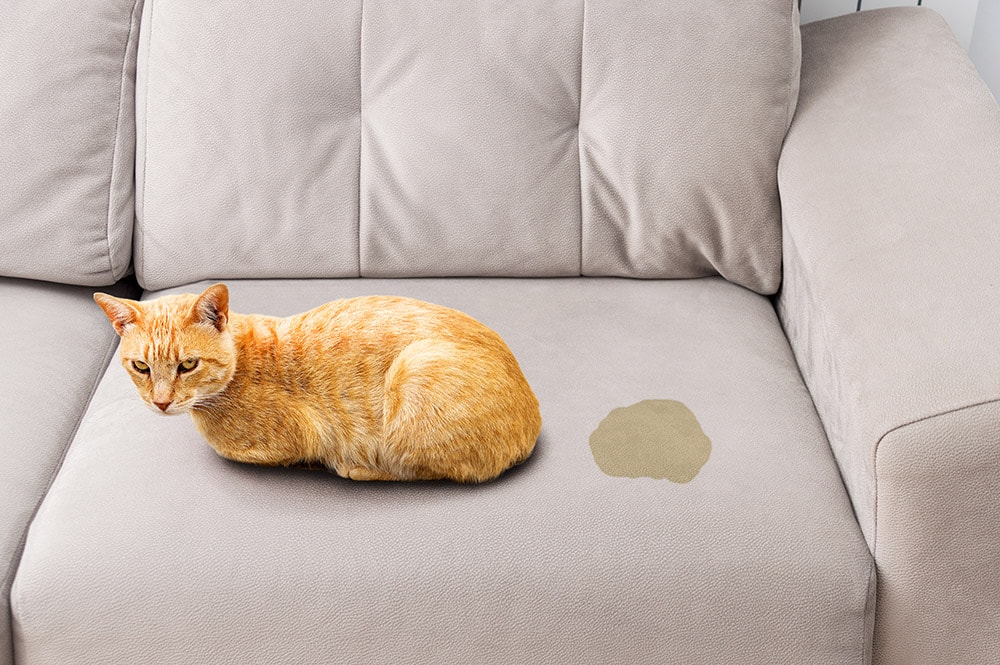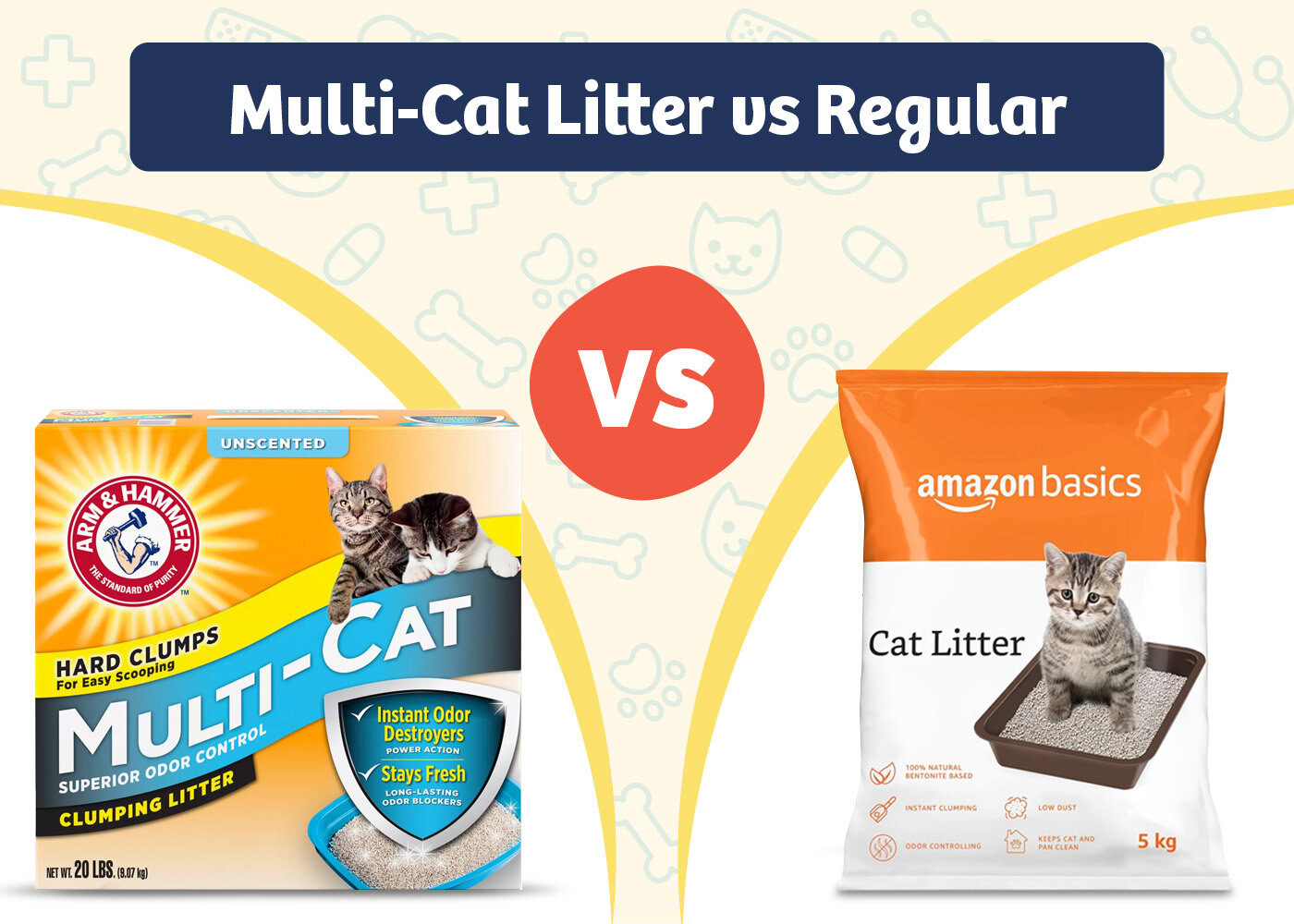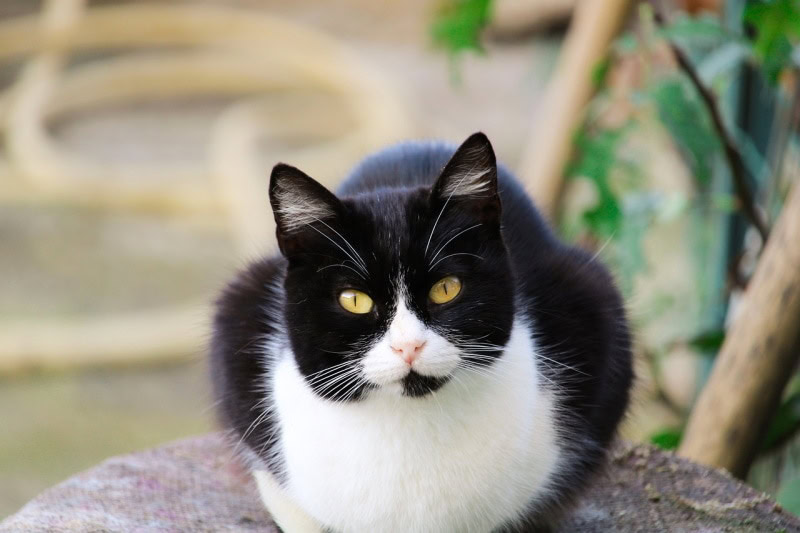Click to Skip Ahead
Cats have the unique ability to enchant, entertain, and sometimes frustrate us. We can forgive our naughty cats for most of their transgressions, but when they pee on our favorite shoes or an expensive couch, we’re left with the chore of removing the stain and the smell!
You can try several methods to remove the stain and the odor. Then, you can return to appreciating your cat—with your leather shoes placed safely in your closet.
How to Get Cat Urine Smell and Stains Out of Leather
1. Blot
If the urine is fresh, you must start by carefully blotting it with a clean cloth or paper towel. Scrubbing will just press the urine deeper into the surface, so gentle blotting and dabbing will enable the liquid to be drawn up into the cloth and not back into the material.
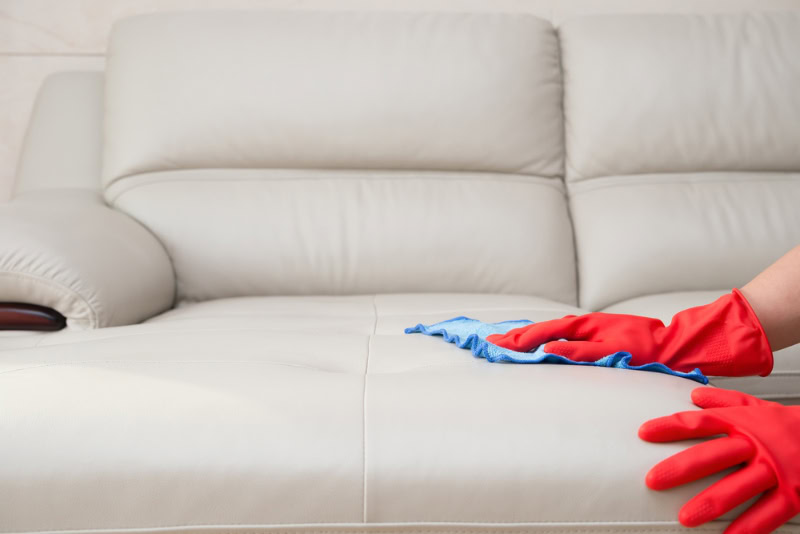
2. Cover
Once you’ve blotted up the excess urine, use a new clean cloth or paper towel, rest it gently on top of the stain, and let it sit for a little while. This will help pull out the last of the moisture still in the leather.
3. Use Enzymatic Cleaners
Before you use any cleaner on your leather items, double-check the instructions on the label to ensure it won’t damage the material. Your best bet is to invest in an enzymatic cleaner. It’s designed to break down the ammonia and carbon dioxide in the uric acid, which is why it is so effective against urine odors and stains.
However, some enzymatic cleaners can cause slight discolorations or fading on leather items. Before using the cleaner on the urine stain, you should pre-test it on a spot that wouldn’t normally be noticed.
Most of these cleaners require you to saturate the stain thoroughly, let it sit for around 5 minutes, and then blot dry. You can repeat this process until the urine stain and smell are gone. You don’t need to rinse off the cleaner.
Follow up with a leather conditioner so your leather doesn’t dry out from the cleaning process.
Our Favorite Product
Hepper Advanced Bio-Enzyme Pet Stain & Odor Eliminator Spray is our favorite all-purpose cleaner for pet messes. It permanently lifts the very worst stains and odors, making clean up and accident prevention breeze. Hepper offers a 100% guarantee, which is a great bonus! Learn more about it here.
- ADVANCED ENZYMATIC CLEANER - Penetrates the most stubborn smells and stains at the deepest molecular...
- FOR ANY MESS, ON ANY SURFACE - This pet odor eliminator cleans your carpets, floors, furniture,...
- FRESH, NATURAL ODOR - Our unique formulation doesn't rely on dangerous or unpleasant chemical...
At PangoVet, we’ve admired Hepper for many years, and decided to take a controlling ownership interest so that we could benefit from the outstanding products of this cool cat company!
4. Use Detergent, Baking Soda, and Peroxide
You can also use a homemade cleaner on your leather. This concoction can clean old and new stains. Blot the stain (if it’s new) first, and then in a spray bottle, mix 1 cup of 3% hydrogen peroxide with 1 teaspoon of dish detergent and 3 tablespoons of baking soda.
Spray the stain and let it sit for a few minutes. Wipe it off with a clean but damp cloth or paper towel. Remember to pre-test a spot first and use a leather conditioner when you’re done.
5. Use Baking Soda and Vinegar
You can also mix a 50/50 mixture of distilled water (distilled is best, but tap water is fine) with white vinegar in a spray bottle. Spray the stain, let it sit for a few minutes, and gently wipe it off.
You can then sprinkle baking soda over the stain to absorb the excess moisture and odor. You might need to repeat these steps a few times.
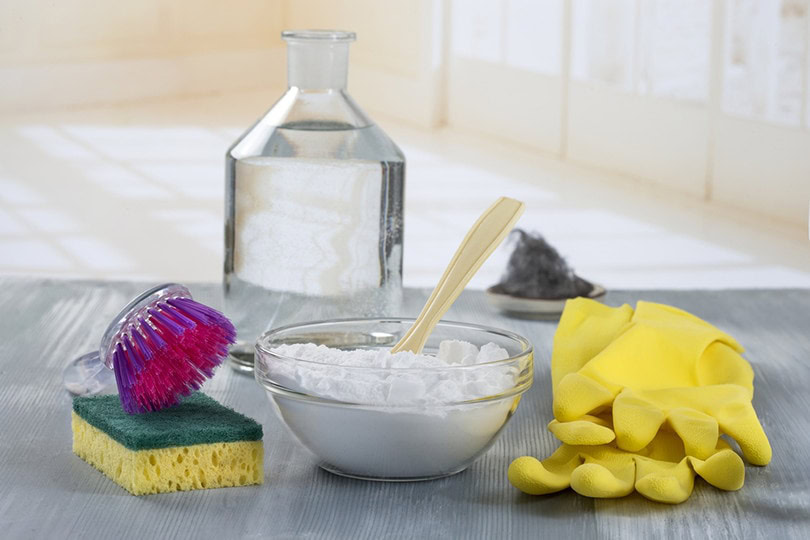
6. Remove Residual Odor
If you’ve been successful at removing the stain but think that you can still smell the urine, try this out: Fill a bowl with coffee grounds or activated charcoal and leave it next to or on top of the leather item overnight. Charcoal and coffee grounds work pretty well at absorbing odors.
Why Does Cat Urine Stain & Smell So Bad?
Cat urine is mostly composed of uric acid, which gives it a strong odor. When urine stays on a surface for a while, the bacterium in the urine decomposes, generating that strong ammonia odor.
As it continues to decompose, cat urine releases something called mercaptans, which are also found in skunk spray. This gives you an idea of the intensity of cat urine.
If you’re the lucky owner of an intact male cat, their testosterone can intensify the odor. Senior cats can also have stinky pee because their kidneys don’t work as effectively as younger cats.
Also, cats were originally desert animals, and their urine is more concentrated than most other animals.
However, with the proper techniques and cleaners, you should be able to remove the stain and smell.
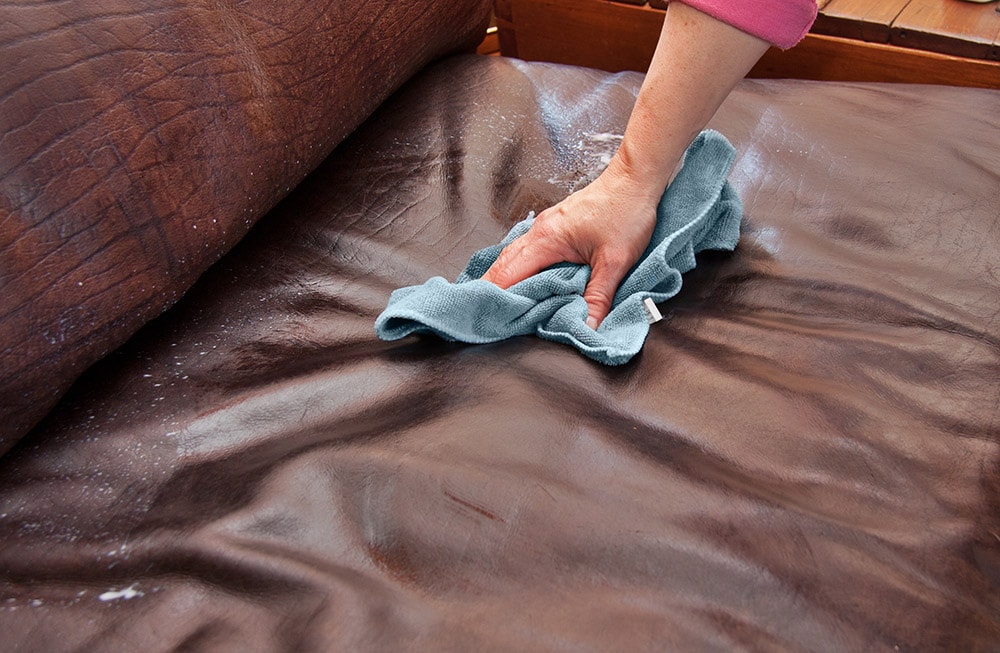
Why Do Cats Pee Outside of the Box?
It’s vital to determine why your cat is urinating outside of the litter box. Otherwise, it could keep happening, and you also want to ensure your cat is healthy and happy. The following are a few common reasons cats pee outside the litter box.
- Litter Box: Sometimes, the problem is the litter or the litter box. The box might not be the right size, or your cat might have trouble getting into it. If you have the box in a high-traffic or noisy area, your cat could be avoiding it. The litter should have a medium to fine texture without any scent added, and it should be cleaned frequently.
- Medical Problem: There are specific health conditions that can lead to your cat avoiding the litter box. Urinary tract infections and bladder stones can cause pain when a cat tries to urinate. Some cats will associate that pain with their litter box and stop using it. Some conditions like diabetes, liver disease, and kidney disease can increase how frequently a cat urinates, which can cause them to pee outside the litter box.
- Stress: Stress and anxiety can also lead to a cat urinating in inappropriate locations. A new pet or person introduced to the household could add a great deal of anxiety, as could moving to a new place. Cats prefer routine, so when their routines change, some might start urinating outside of the box due to stress.

Conclusion
We hope you can remove the odor and stain from your leather by following these steps. Don’t use bleach or a product with ammonia in it. Not only could it damage your leather, but it could also draw your cat to the same spot because cat urine also has an ammonia smell.
If you are dealing with an expensive leather item, you might want to consider having it professionally cleaned, just to be safe.
Remember to address the problem, even if it means taking your cat to the vet and or an animal behaviorist to ensure that they are in good health, physically and mentally. You want a healthy and well-adjusted cat, as well as leather goods that are safe from your cat’s urine.
See also:
- Natural and Safe Home Remedies to Keep Cats Away
- Apple Cider Vinegar for Cats: Uses, Remedies, & Benefits
Featured Image Credit: cunaplus, Shutterstock
